'The Haunting of Bly Manor' Cast Answers Lingering Questions About the Series
T'Nia Miller, Tahirah Sharif, and Kate Siegel explain all the (sometimes confusing) ghostly details.
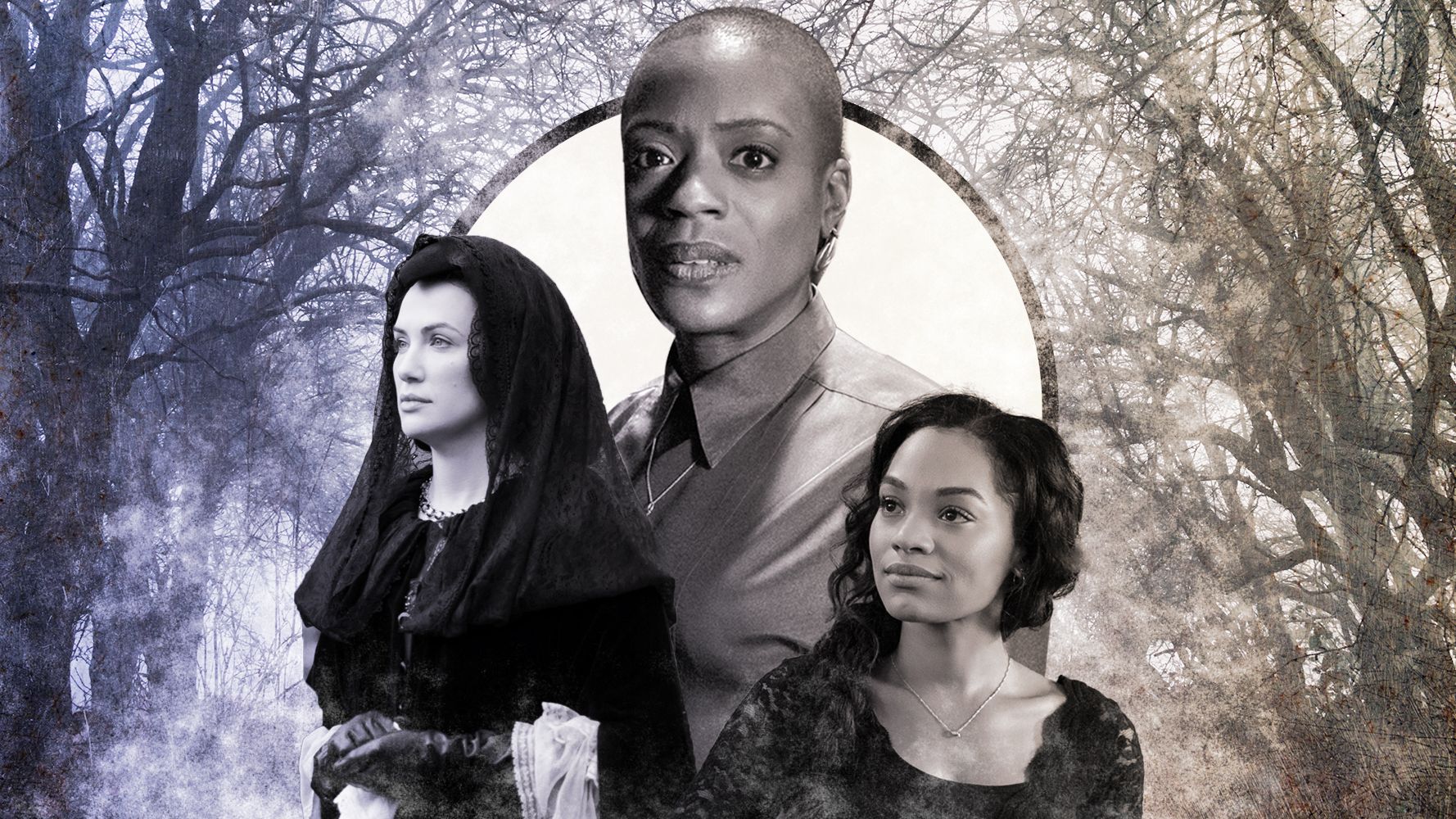
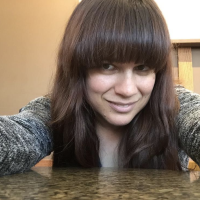
Warning: The following story contains detailed spoilers for The Haunting of Bly Manor.
Scary stories often have a familiar structure: Take an outsider, drop them in a situation they’re not prepared for, add an unnatural element, and unleash the frights. When The Haunting of Bly Manor opens with Dani Clayton (Victoria Pedretti), a plucky young woman from America accepting a job as a governess at a pastoral British estate, it seems like the Netflix series is primed to follow a similar formula. And without fail, there is a sense of dread in the air as Dani hikes up to the imposing grounds. Her charges are just a bit too clever, and a haunt of ghosts quickly make themselves known.
But the limited series, from Mike Flanagan, writer and director of the narratively unrelated The Haunting of Hill House, quickly transcends cheap scares—even if Clayton’s personal ghost (the bright-eyed specter of her fiancé who died in a tragic accident) makes several bloodcurdling appearances. Based on Henry James’ novella The Turn of the Screw, the show’s primary focus is on the relationships of the Manor. Clayton builds an ad hoc family with the gardener, housekeeper, and cook, and a sweet series of love stories, both intimate and platonic, quickly takes root. Despite Bly delivering its chills alongside a heavy helping of warm and fuzzy feelings, it doesn’t change the fact that the living characters are often possessed by malevolent spirits, kind ghosts don’t always know that they’re dead, and a mysterious “Lady of the Lake” emerges nightly to walk the grounds in search of her missing daughter.
It’s a tangled web of ghost stories, skillfully laid out across nine episodes. Which means each installment is packed with tiny details, hidden tells, and English class-worthy symbolism, much which can easily go unnoticed. To get to the bottom of the subtlety of the series’ storytelling, Marie Claire held a virtual roundtable with T'Nia Miller, Tahirah Sharif, and Kate Siegel, who played three of the story’s most notable ghostly residents. From a persistent crack in the wall, to the significance of an elaborate dollhouse, the actors helped us untangle the secrets of Bly. Turns out that with so many clever clues hidden in plain sight, a second viewing would be perfectly splendid.
Marie Claire: It seems like every ghost of Bly Manor plays by their own rules when it comes to the afterlife. What was your character’s trajectory?
Kate Siegel [Viola, the older sister in episode 8, The Romance of Old Clothes]: At the root of it, this is Viola's game, right? She set up this whole game. And so, I think that, much like anyone who codes a game, she can change the rules as she sees fit.
T'Nia Miller [Hannah Grose, Bly’s housekeeper]: That's a brilliant answer, Katie. Well bloody done!
Stay In The Know
Get exclusive access to fashion and beauty trends, hot-off-the-press celebrity news, and more.
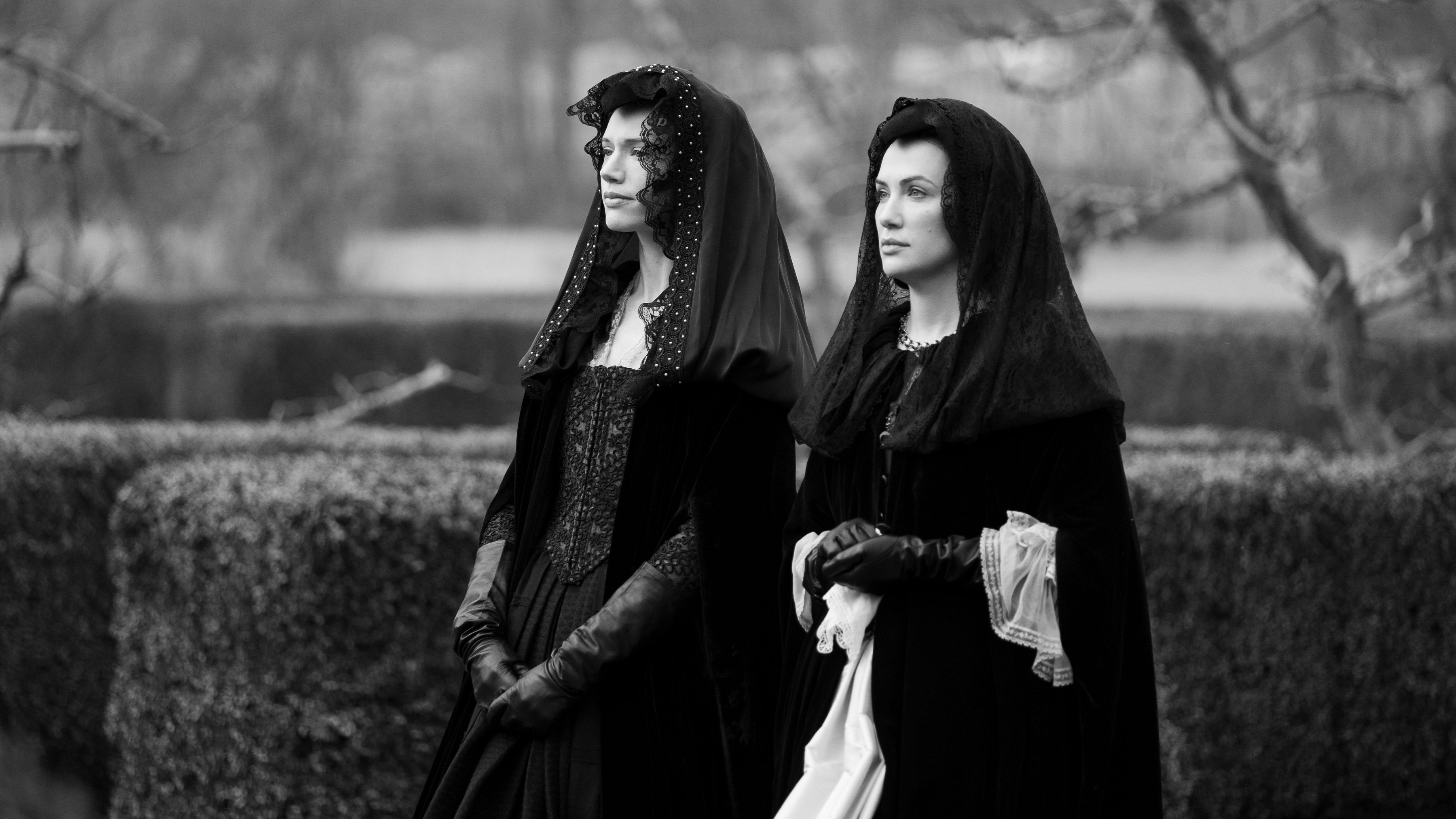
Kate Siegel as the Lady of Bly in the Netflix limited series.
Tahirah Sharif [Rebecca Jessel, the former governess who was murdered]: I think for Miss Jessel, it was a bit more straightforward. Once she passed away, she couldn't touch the living or communicate with them until she learned how to. They couldn't see her until she made herself visible. And then the rule kind of goes along with the basic possession rules that run throughout the entire series. When she dies, and when she figures out how it happened, it's just very traumatic. And she's a lot more broken than she was when she was alive.
TM: I think our characters, they share something, and that's their fierce love for their children. These children keep them rooted there. I'm a mother so I relate to it in that respect. I think that's what keeps them in that power to stay there, where the other ghosts aren't once they're faced with the truth in front of them. I was the Wile E. Coyote of the bunch! Hannah’s in that firm denial that keeps her rooted and only as the realization creeps, she starts to spasm out. We don't know that she's dead until we until we watch episode five, and even after that, she's like, 'No.' Literally just right until the end. And when she accepts that, she's at peace.
[pullquote align='center']I think our characters, they share something, and that's their fierce love for their children. [/pullquote]
MC: It takes a while before Hannah’s murder is revealed. Are there any onscreen hints that she might not be alive?
TM: When we first sat down, [Mike Flanagan] was saying, 'Maybe where you cracked your head in the well, just touch your head a little bit.' There’s also the fact she always has an excuse not to eat. And her cup always remains full. Those are the telltale signs. She's drinking away merrily, but nothing is going down.
KS: It's such a fun show to watch for that because there are things that you would think are mistakes, like the wine doesn't go down. Is that a continuity error? It kind of tricks you. I love seeing the cracks appear in the wall.
TM: Yeah, the crack in the wall is her dead eyes, and the last thing she sees is a crack in the well. It's the last thing coming back to her.
KS: As her reality starts to drip in, she starts to see that crack in the wall of whatever she's looking at.
MC: Kate, I feel like Viola dealt with the same alternate reality when she was locked in a box and had a hard time coming to terms with it.
KS: Yeah, what's really fun about Viola is she is the story within a story. She's like the Inception of Bly Manor. I was completely free from having to be a person at all. I was a fairytale. And that way, I could constantly be doing things that maybe humans didn't do. Because I'm a parable that's teaching the next person about the “gravity well” of Bly Manor. I'm a messenger. And so, the box theme was important with Viola—the way she carries herself. She's very trapped, [like] the way she walks; when she's the Lady of the Lake, [she] gets very stiff, because she's having to create an entire sense of movement with her mind. Her actual body is at the bottom of a lake. And so, this projection in her mind is her will and her force creating movement.
MC: Why do ghosts' faces wear away the longer they’re dead?
KS: This is another one of Viola's coding mechanisms [with] the ghosts of Bly Manor. Because Viola has been thrown into a lake. What happens if something is left in water? A stone can be eroded until it's smooth. That's what's happening to Viola in her head. And as she continues to grab people and pull them into her ghost land, she makes them follow the same rules. You'll be washed away. Everything you have will be washed away. Your face will be washed away, your memories will be washed away, except for your one core directive. And for Viola that was to find her daughter. That's all that's left.
MC: How are characters “tucked away” in memories?
TS: Peter Quint [played by Oliver Jackson-Cohen] would have taught Rebecca ways to possess the children and tuck them away [so they don’t know what’s happening]. So, they're kind of tucked away in happy memories, as that's what he's been doing to me, and I haven't been realizing it. And I think the idea was that, whoever you're in possession of, you're able to control where you “tuck them away,” and what memory you want to tuck them into. And obviously, you see as the series unravels, and more and more information is revealed, that it's not always happy memories or memories that you may have presently looked back on with rose tinted glasses. When you're tucked away in that memory, it's not as fun or nice or dreamy as it was.
When you're tucked away in that memory, it's not as fun or nice or dreamy as it was.
KS: It wasn't really her choice, right? She was tucked away from her family with illness for years, and she was locked in that room in her bed, and all she had was her memories. I think it was an unintentional kind of thing she wanted to give to people, where it was just how life was for her right before she died. All she knew was ambition, ambition, ambition, ambition, until illness came for her. And then she was tucked away. And so, going back to Viola's number one directive, which is ‘find my daughter,’ she needed people out of her way. So, she just thought, I'll just move them into their memories, which was fine for me.
TS: Metaphorically, as well. That idea of when we get “tucked away in our memories,” for a lot of people, when you're in those uncomfortable memories, I think it's symbolic of being stuck in the same patterns of behavior. It's like you enter a new relationship to find out it's exactly like the last one. It’s the same things playing out again, and again, and again. Memories, when you look back on them, they're wonderful, and joy filled. But actually, If you went back to that exact time, was it like that? Would you see the cracks? Would you see the more negative sides of it? When Quint flirts with Rebecca and asks her to try on the fur coat, the first time, it's exciting, and it's intriguing. But when you see it repeat, again and again, actually, it's a bit controlling. You see the cracks appear each time.
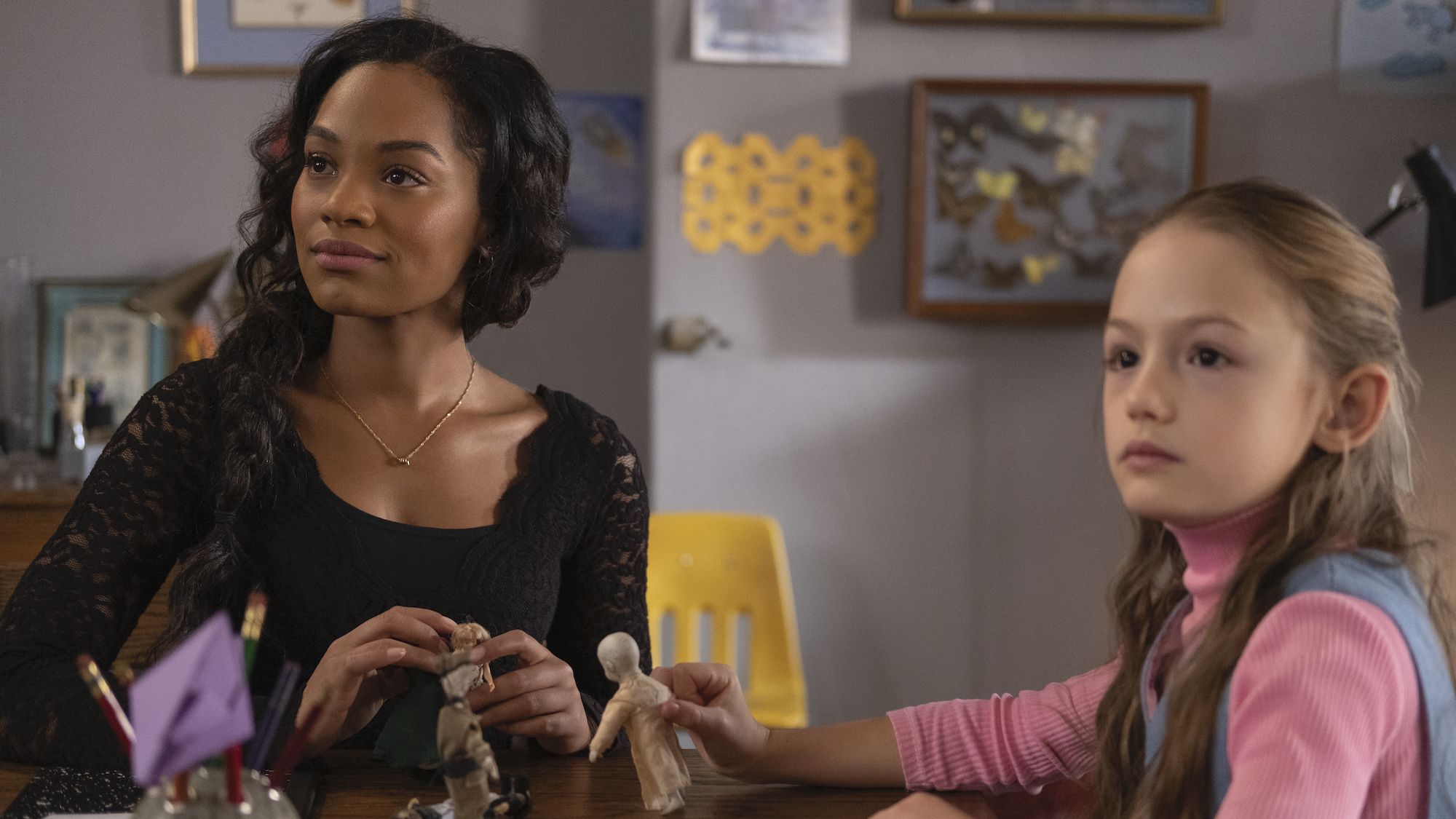
Tahirah Sharif as Rebecca Jessel and Amelie Bea Smith as Flora in the third episode of The Haunting of Bly Manor.
MC: Tell me about the phrase “It's you. It's me. It's us.”
KS: These moments that are completely transformative in your life, they stick in you. Viola was entirely ambitious and forward thinking. And she was going to save Bly. And she was going to run the manor, and she was going to protect her sister, and everything was going to happen. And it was always about separate things—little things in boxes. Bly Manor in a box. Arthur's in a box. Her sister is in a box. And, I'm going to keep my boxes moving. And then once she gives birth to her daughter, it's the first-time Viola is combined with someone. [She is] a part of her as opposed to outside of her. And it's the first thing that she says to her daughter. She looks down at her and says, ‘It's you. It's me, it's us.’ And so, as everything washes away, as Viola's face is gone, as her memories are gone, she's just constantly walking up to look for her daughter in the bedroom. Decades and decades and decades at this. It's the only thing left. So, when Victoria's character says to her, 'It's you It's me, it's us,' it jogs the last memory that Viola has, that last tiny grain of humanity. And that's the only time Viola ever lets anybody in, and so that's why the magic works.
MC: I love the way it becomes some kind of ghostly shorthand for consent when other ghosts use it as permission before possessing someone.
KS: Everyone gets consent, yo!
TS: Ask for consent! Ask for consent!
TM: I didn't get my consent. I was pushed down [a] well!
MC: What role did Flora's dolls and dollhouse play in the storytelling? She mentions early on she's trying to protect everyone in the manor.
TS: To be really, really honest, even reading the scripts, that was probably the only element of this, kind of, whole story that I was like, ‘I'm gonna have to watch this again and again, and again,’ to really figure out the exact role of the dolls. Where they're placed in the dollhouse always relates to everybody in the manor. I think that's going to be something really exciting for viewers to rewatch. Go back and see where those dolls or talismans are, how they appear, and where they're placed in that dollhouse, because it all relates to the story. The hidden ghosts that you might see or might not see in the scene, they all relate to the story somehow. They're not random at all.
TM: It's the little doll-faced boy [ghost] that places all the dolls, because he knows where everybody is in relation to the Lady of the Lake. And they move around. And that's why Flora is so adamant to Dani. ‘No, don't move that!’ ‘What are you doing? Don't move that doll!’ That tells her exactly where The Lady of the Lake is. And that's why the children can run to Dani's aid and distract her and say, ‘I need a bedtime story.’ ‘I need milk or, had a nightmare.’ Because it's all fake. Because the doll-faced boy told them where the danger was lurking, basically. They're very clever, those kids.
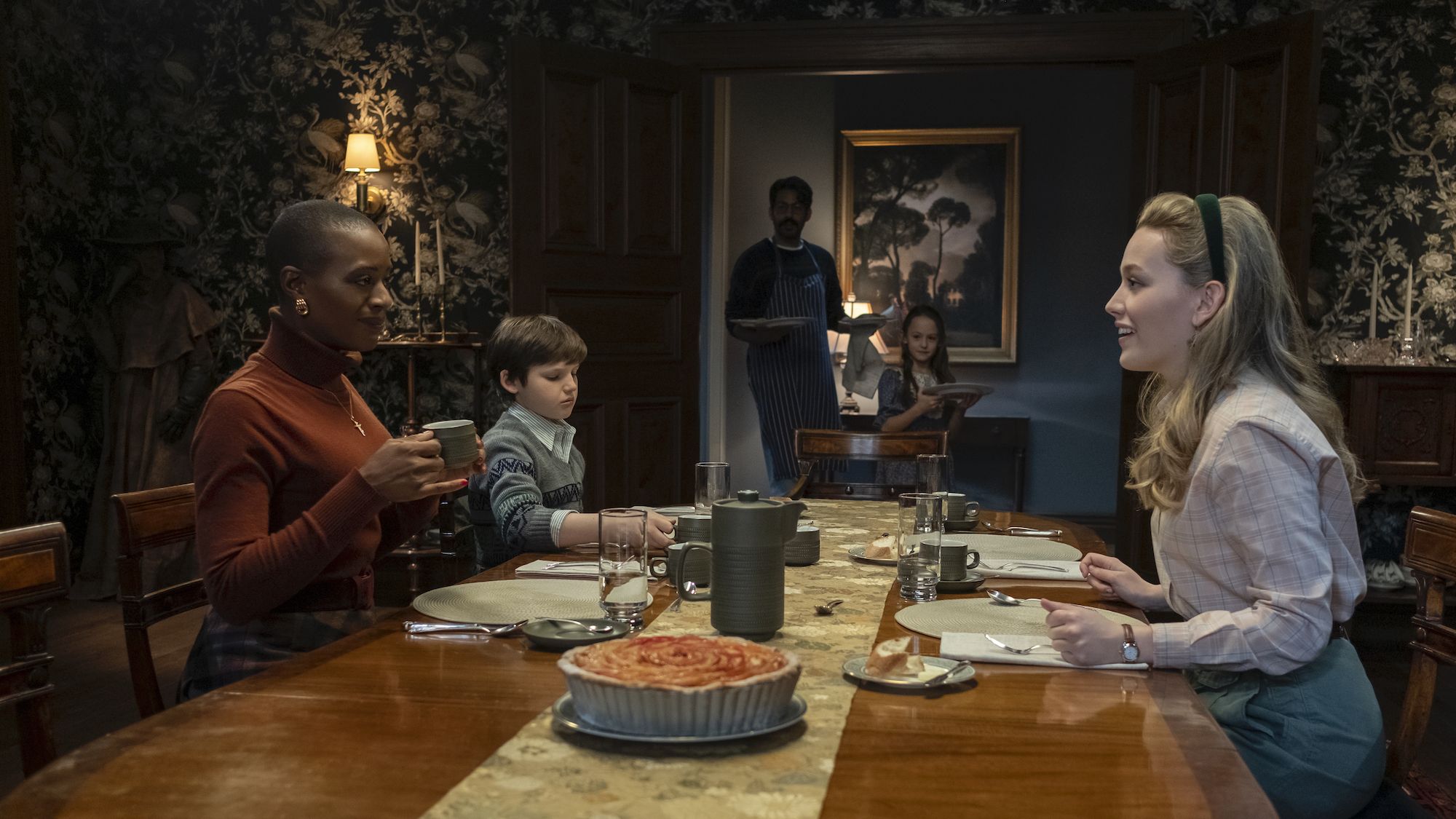
T’Nia Miller as Hannah (Mrs. Grose) sits across from Victoria Pedretti as Dani Clayton in the first episode of The Haunting of Bly Manor.
TS: We’ve spoken about the role of children in this series as well, and like how much the adults love them and protect them. The inhabitants in Bly Manor aren't blood related, but we've become like a family of sorts. And the children are loved and protected by everybody. As soon as Flora says to [Miss Jessel], 'I don't like this, stop!' Miss Jessel never possesses her again. And I think that's so important. I remember reading that in the script and making a mental note of it.
MC: After working on a show layered with such symbolism and meaning, has Bly Manor changed the way that you look at ghost stories or ghosts?
TS: I have always been a horror fan. But seeing intelligent horror—horror that comes out of character-focused storytelling—and essentially, a drama between people. I've always been a fan of Mike Flanagan because he does that very well. And so, finishing Bly makes me more highly appreciative of that type of storytelling.
KS: I think the one thing this COVID time has changed for me is my understanding of what a ghost is. Because I remember being in L.A. and driving past playgrounds where I would take my kids, and they were covered in caution tape and locked up. And they looked haunted, and not by the ghosts of children past. But the ghosts of children who wanted to get in. Things started to feel haunted in that way. You drive by a restaurant where you would have brunch with your friends, and it would just look empty and haunted because you could almost feel the desire of people wanting to get out of their houses and wanting to connect again. And that kept bringing me back to Bly. The ghost is the intention. The ghost isn't memory.
TM: I've never been a fan of slashers and all that kind of stuff. The makeup? Great, well done. But it doesn't do it for me. But this isn't just a ghost story. It's a love story. It's a thriller. It's a comedy. And it’s character lead. A ghost story can do that. [If you can do that] I think you’re encouraged to look at your own ghosts. That's definitely the takeaway: I’m looking at my own damn ghosts.
This interview has been edited and condensed for clarity.
RELATED STORIES
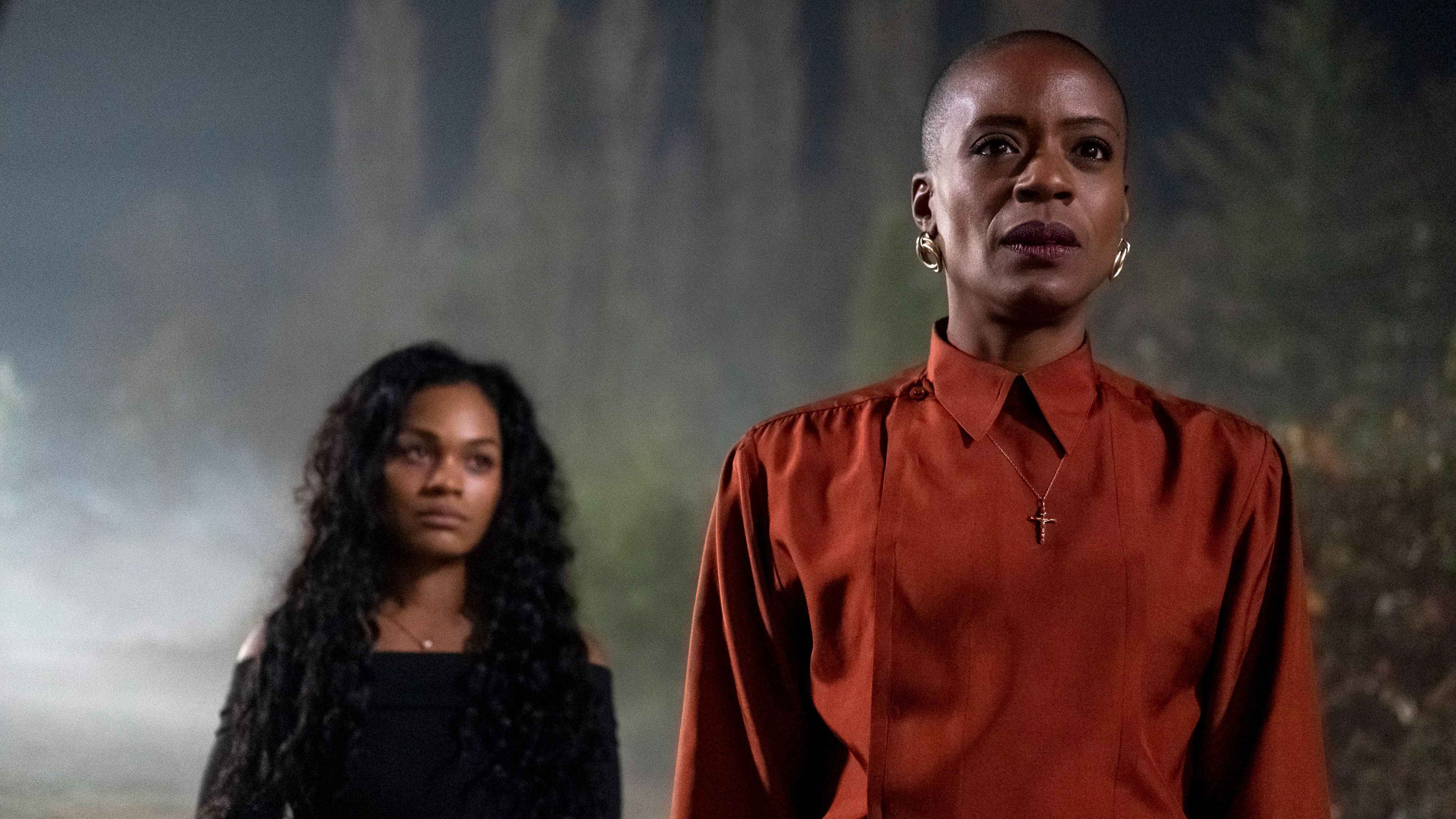
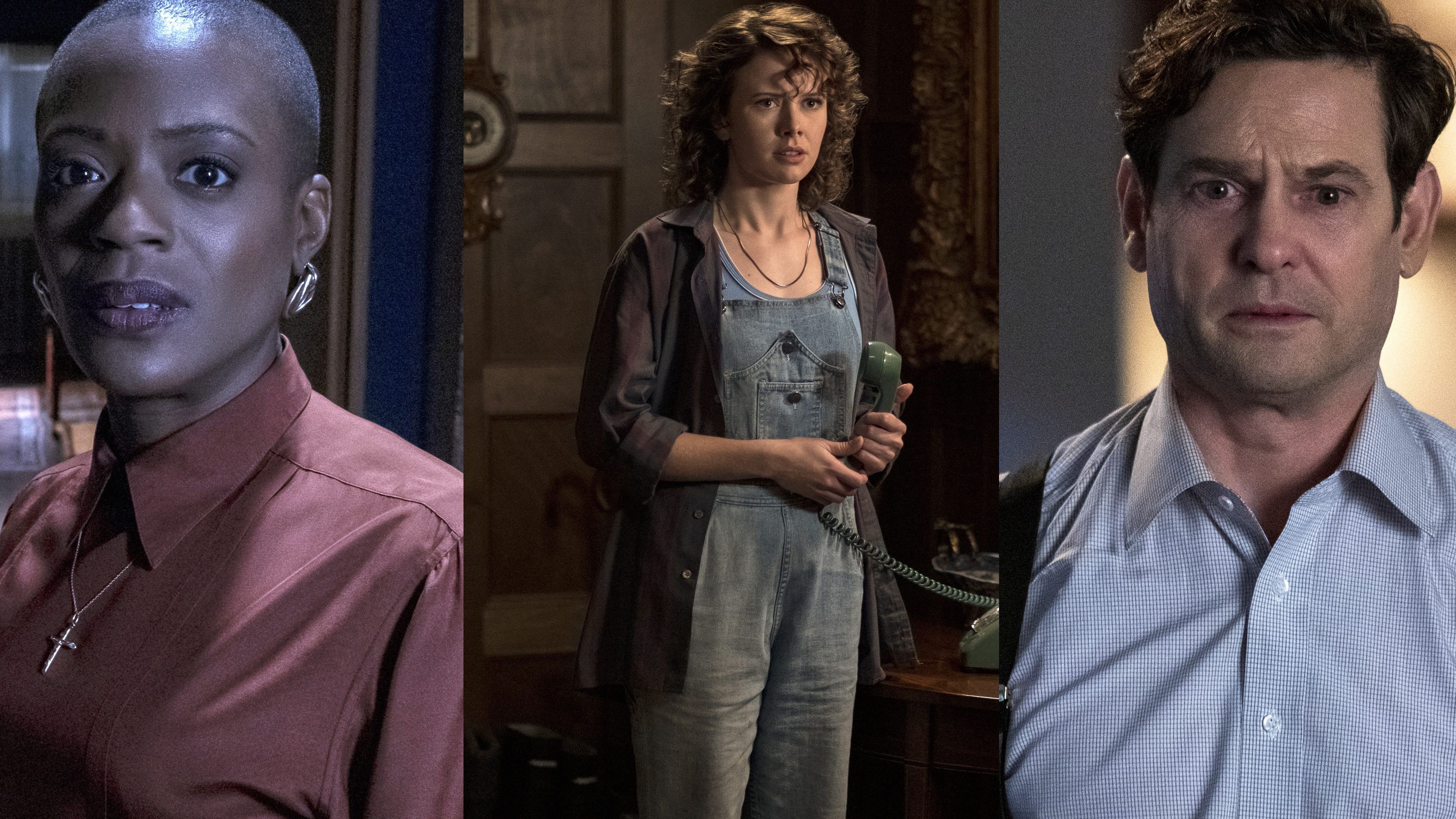
-
 Princess Anne's Unexpected Suggestion About Mike Tindall's Nose
Princess Anne's Unexpected Suggestion About Mike Tindall's Nose"Princess Anne asked me if I'd have the surgery."
By Amy Mackelden Published
-
 Queen Elizabeth's "Disapproving" Royal Wedding Comment
Queen Elizabeth's "Disapproving" Royal Wedding CommentShe reportedly had lots of nice things to say, too.
By Amy Mackelden Published
-
 Palace Employees "Tried" to Get King Charles to "Slow Down"
Palace Employees "Tried" to Get King Charles to "Slow Down""Now he wants to do more and more and more. That's the problem."
By Amy Mackelden Published
-
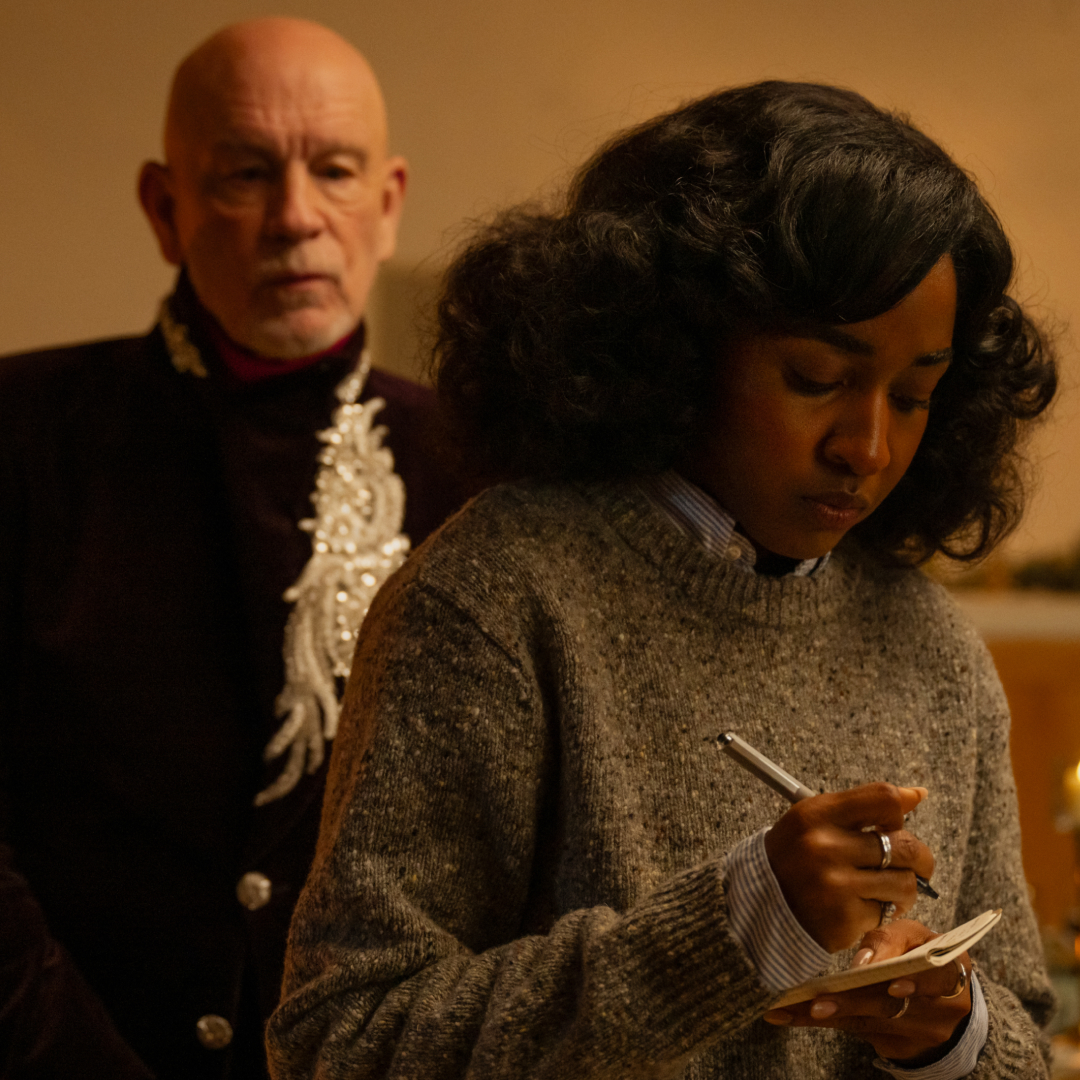 In 'Opus,' Cult Leaders and Pop Stars Are One in the Same
In 'Opus,' Cult Leaders and Pop Stars Are One in the SameThe A24 film's costume and production designers open up about crafting fictional pop icon Moretti’s style and mysterious estate.
By Sadie Bell Published
-
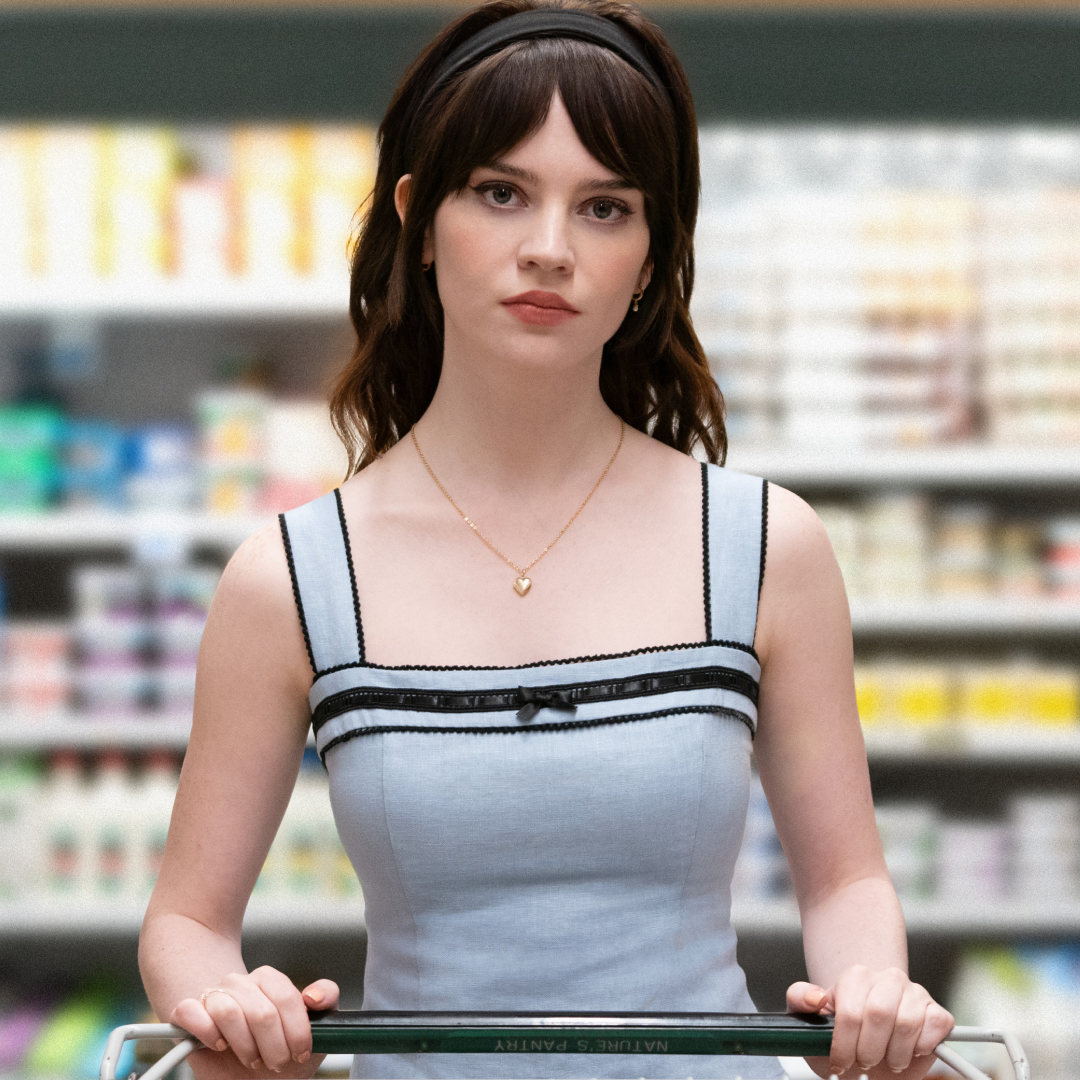 How 'Companion' Turned Sophie Thatcher Into the "Perfect Girlfriend"
How 'Companion' Turned Sophie Thatcher Into the "Perfect Girlfriend"The film’s creative team breaks down turning the star’s robot character into the \201cperfect girlfriend.\201d
By Sadie Bell Published
-
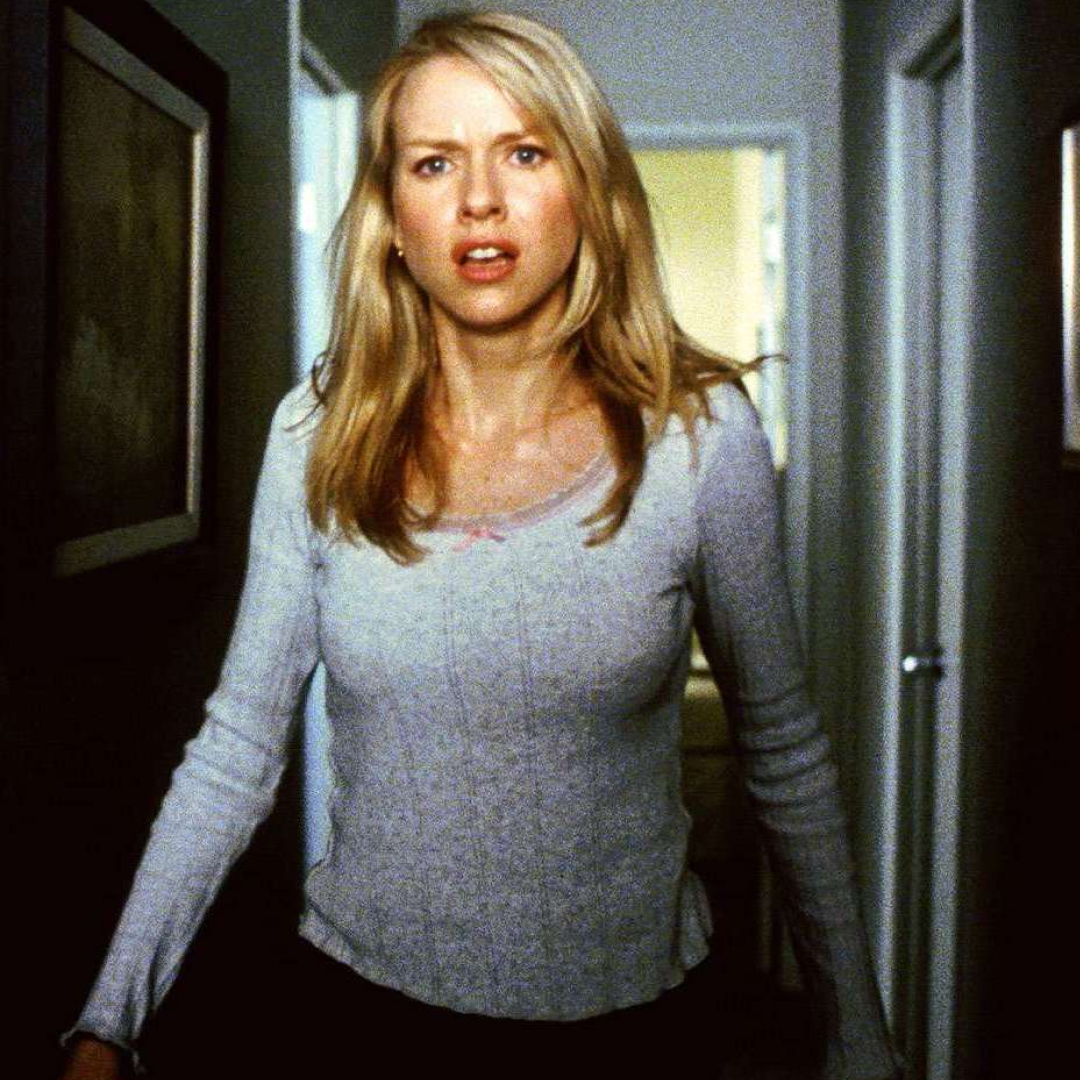 The Scariest Paranormal Movies of All Time
The Scariest Paranormal Movies of All TimeBring on the jump scares.
By Katherine J. Igoe Published
-
 Demi Moore Celebrates First-Ever Major Award Win at the 2025 Golden Globes as a "Marker of My Wholeness"
Demi Moore Celebrates First-Ever Major Award Win at the 2025 Golden Globes as a "Marker of My Wholeness"After 45 years in the industry and a producer told her 30 years ago she was only "a popcorn actress," the star took home a trophy.
By Quinci LeGardye Published
-
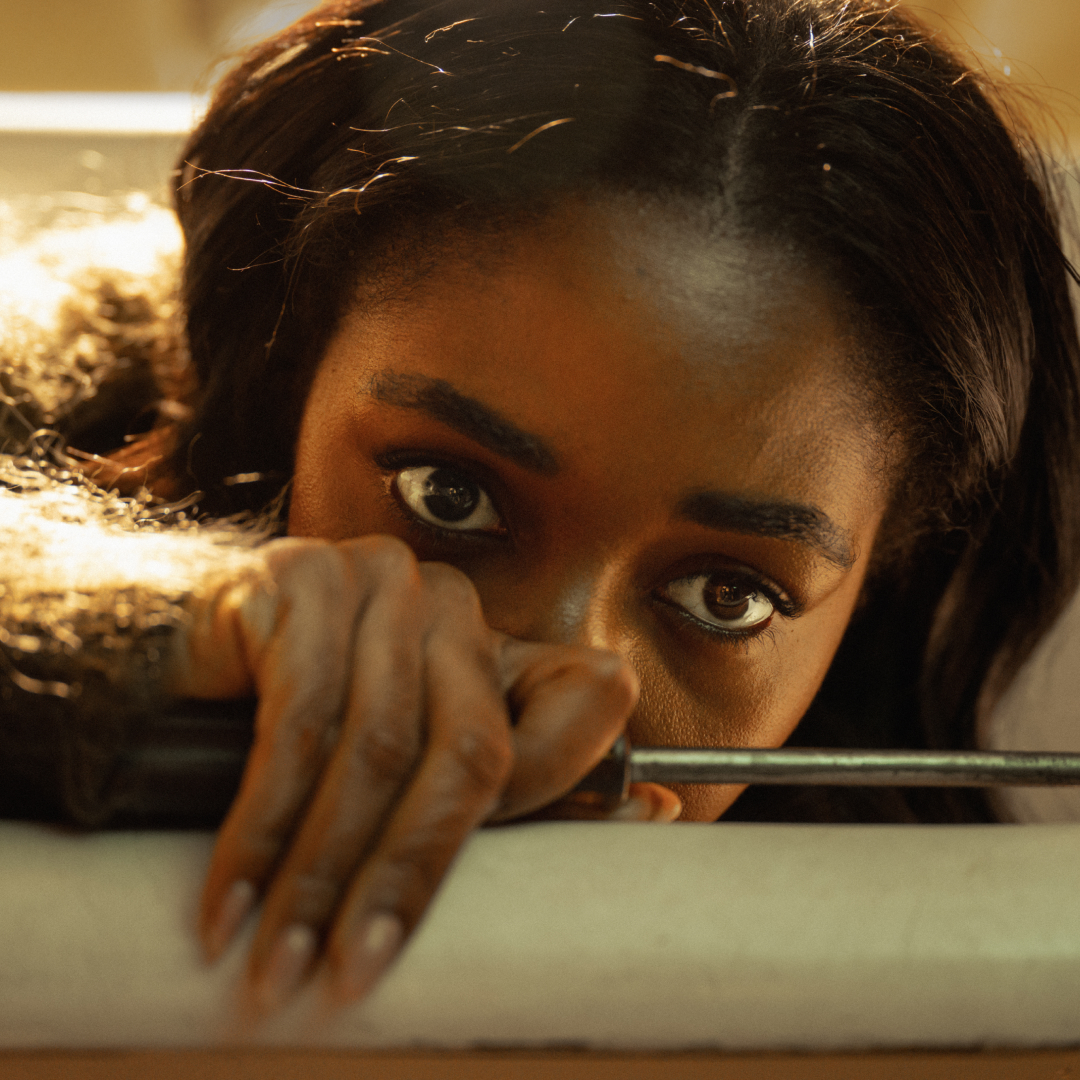 The Best Horror Movies You Need to See in 2025
The Best Horror Movies You Need to See in 2025Here are the buzzy A24 projects and sequels, including 'M3GAN 2.0,' that you need to see.
By Sadie Bell Last updated
-
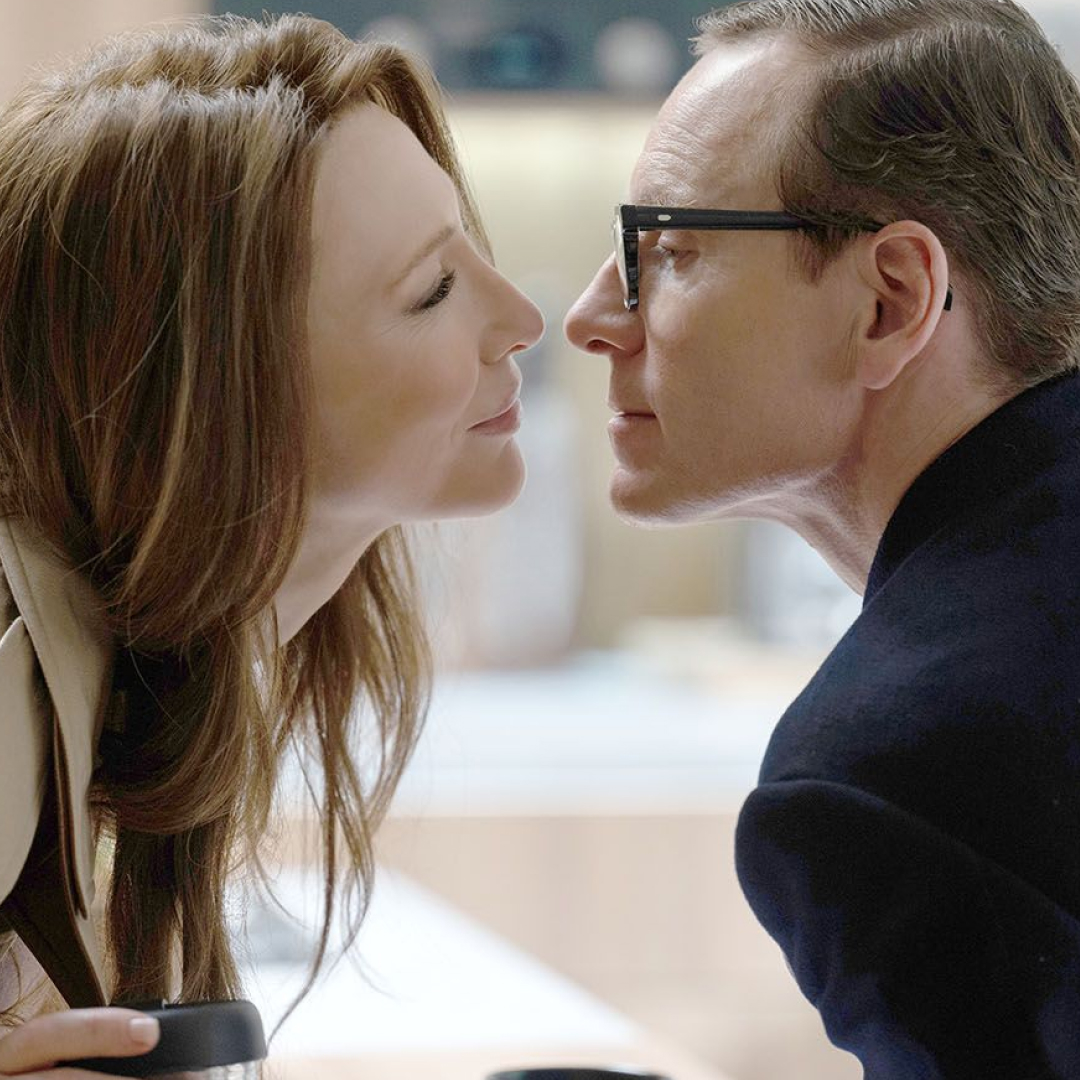 The 25 Best Thrillers You Need to See in 2025
The 25 Best Thrillers You Need to See in 2025Hopefully you like your movies with a healthy dose of twists and suspense.
By Sadie Bell Last updated
-
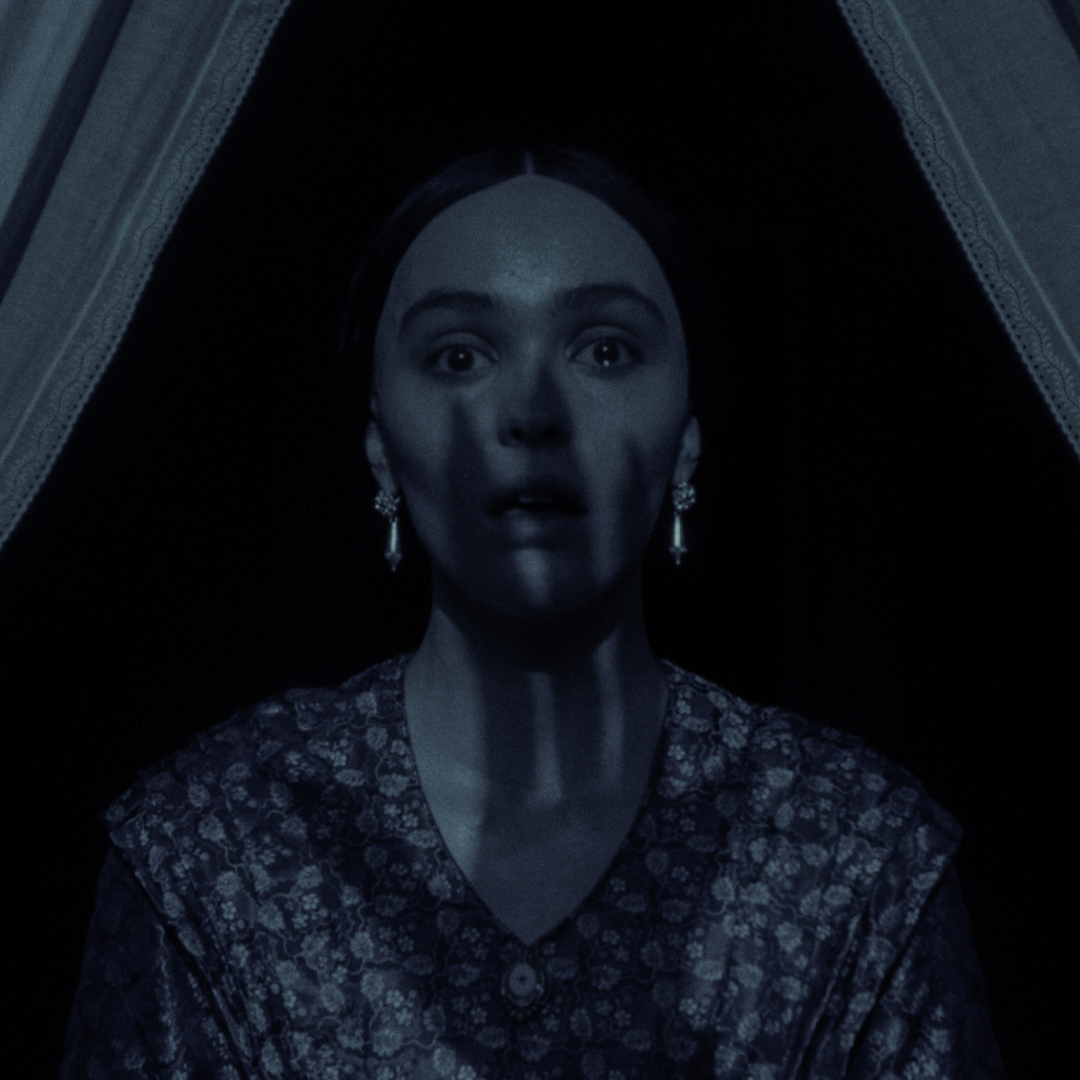 How Lily-Rose Depp Worked with the 'Nosferatu' Movement Coach to Craft Ellen’s Sexual Awakening
How Lily-Rose Depp Worked with the 'Nosferatu' Movement Coach to Craft Ellen’s Sexual AwakeningThe film's movement coach explains how they blended erotic and horror elements for her character.
By Sadie Bell Published
-
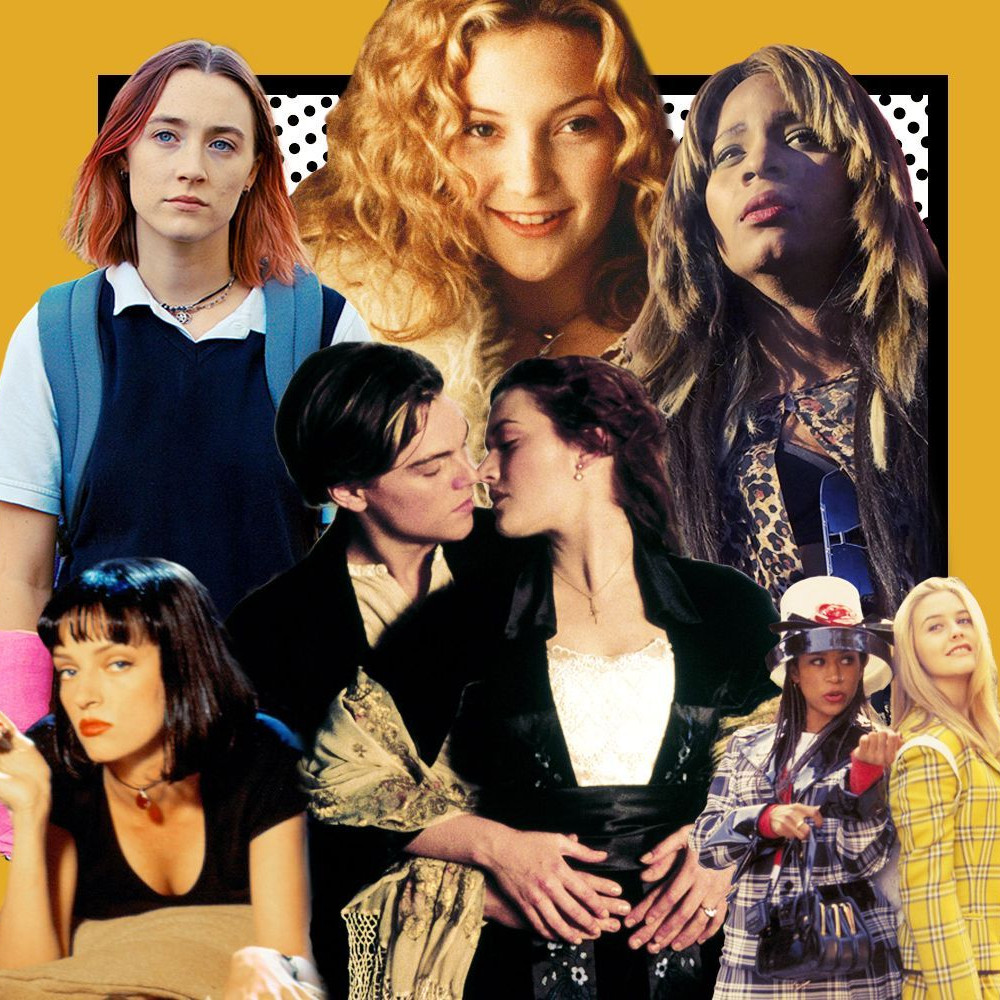 The 100 Best Movies of All Time: The Ultimate Must-Watch Films
The 100 Best Movies of All Time: The Ultimate Must-Watch FilmsWe consider these essential viewing.
By Quinci LeGardye Last updated